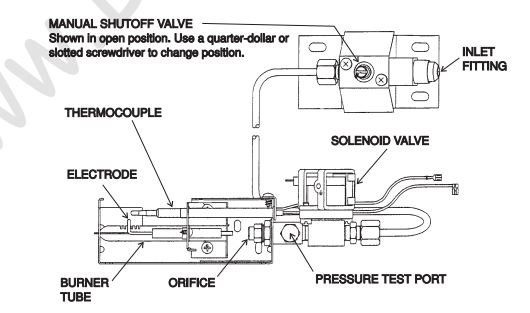sivartb000
Member
- Joined
- Jun 26, 2019
- Posts
- 10
I have a 1995 5th wheel with a Dometic RM7030 refrigerator. When I turn it on using propane it starts right up, will run for a minute or two, and then turn off. I have to turn it back on multiple times (about 10 minutes worth of cycling), and then it will finally stay on. Once on - it seems to be good. It ran for 2 full days without turning off again (until I towed it today). However, in order for it to do that, I have to have it on the coldest setting so that it literally never turns off (which is fine during the 90*+ days, because that keeps it right in the refig safe zone) - but at night that drops it down to about 20* in the fridge. Problem is, if I turn it down at night - once it kicks off, it wont turn back on (or atleast it wont stay on).
I am thinking thermocouple. In the manual, it says to test the thermocouple if it will stay on for 30 seconds, then the thermocouple is good. Using that test - it definitely stays on for over 30 seconds. But, I'm not totally convinced that that rules it out.
Thoughts? Any other things to check? I did half-ass clean the thermocouple, so after I tow it again this evening I will do a more thorough cleaning. Trying to brainstorm my next step if a thorough cleaning doesn't fix the issue.
I am thinking thermocouple. In the manual, it says to test the thermocouple if it will stay on for 30 seconds, then the thermocouple is good. Using that test - it definitely stays on for over 30 seconds. But, I'm not totally convinced that that rules it out.
Thoughts? Any other things to check? I did half-ass clean the thermocouple, so after I tow it again this evening I will do a more thorough cleaning. Trying to brainstorm my next step if a thorough cleaning doesn't fix the issue.

